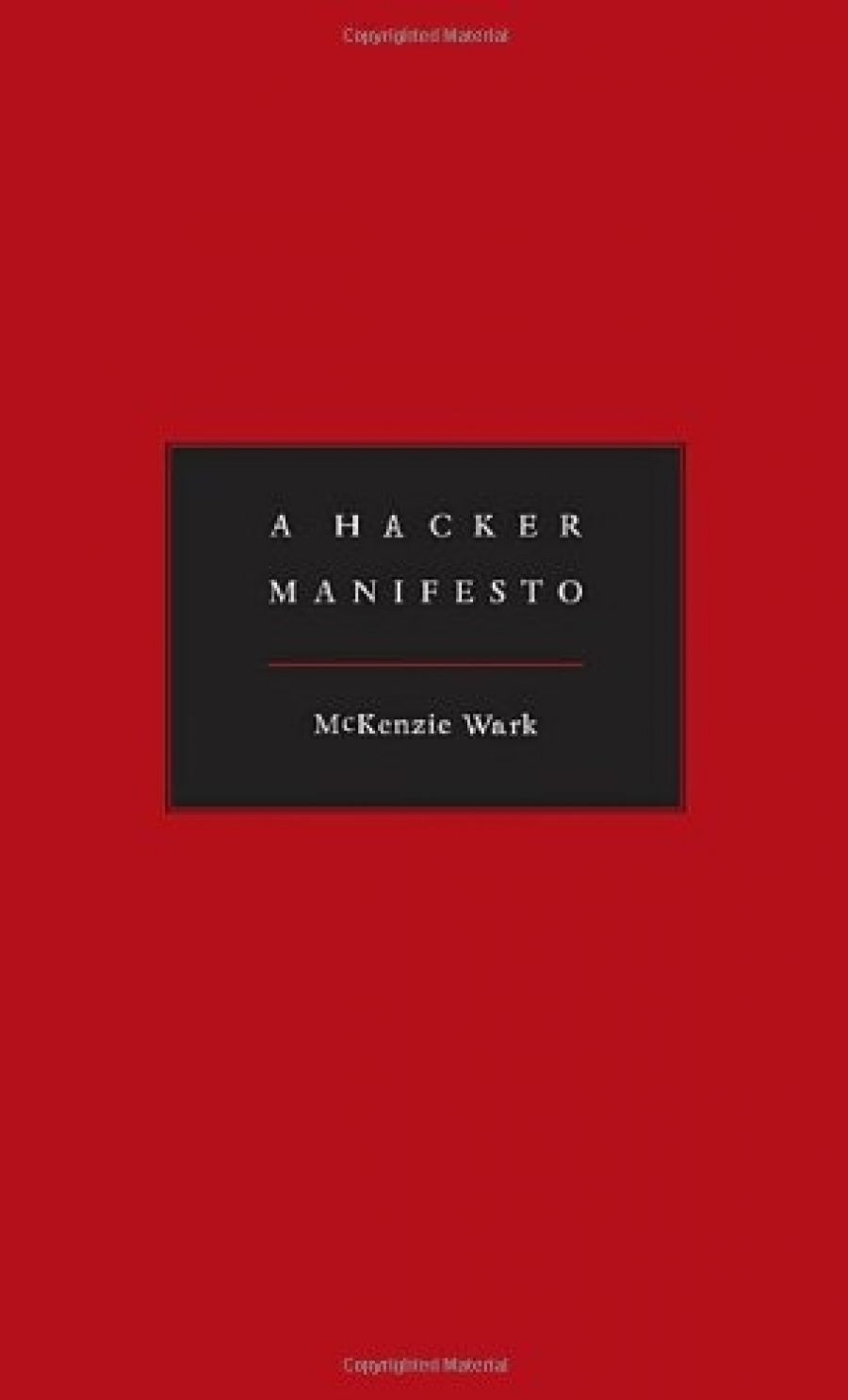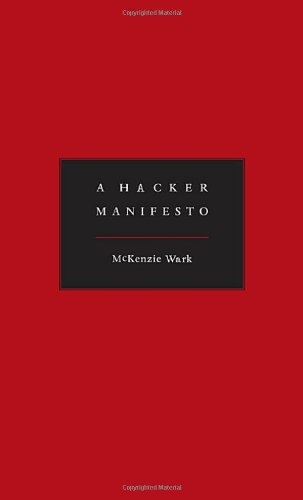
- Free Article: No
- Contents Category: Technology
- Review Article: Yes
- Article Title: The Double of Abstraction
- Online Only: No
- Custom Highlight Text:
McKenzie Wark’s new book consists of 388 numbered paragraphs organised into seventeen ‘chapters’, organised in alphabetic order, from ‘Abstraction’ to ‘Writings’ and going through ‘Class’, ‘Hacking’, ‘Representation’ and the like. Wark is batting for a high score, as the opening sentence, with its breezy allusion to Marx, indicates: ‘A double spooks the world, the double of abstraction.’ One of the things the format of the book suggests – not simply with the numbered paragraphs (which invoke Nietzsche and Wittgenstein as well as Wark’s chosen model, Guy Debord’s The Society of the Spectacle, 1967) but also the whole aphoristic style – is a throwback to those Big Bad Books that were out to blow up or at least transform the world, starting by changing the way we thought about it. In this it has something in common with John Gray’s Straw Dogs: Thoughts on Humans and Other Animals (2003), which seeks to convince us that humanism and anthropocentrism are grand delusions and that there is no way that man can be thought of as master of his fate. Wark isn’t nearly as apocalyptic as this, but he is pretty ambitious all the same. He is trying both to call into existence and to write the blueprint for a new class, the hacker class:
- Book 1 Title: A Hacker Manifesto
- Book 1 Biblio: Harvard University Press, $48.95hb, unpaged
- Book 1 Cover Small (400 x 600):

- Book 1 Cover (800 x 1200):

We produce new concepts, new perceptions, new sensations, hacked out of raw data. Whatever code we hack, be it programming language, poetic language, math or music, curves or colorings, we are the abstracters of new worlds. Whether we come to represent ourselves as researchers or authors, artists or biologists, chemists or musicians, philosophers or programmers, each of these subjectivities is but of a class still becoming, bit by bit, aware of itself as such.
So by the second paragraph, Wark has provoked the question a sceptical reader will hold in his mind for the next 366: in what way is a ‘hacker’ different from an intellectual? Is there any real benefit in reconfiguring intellectual work in this way, or is it just using the metaphorical resources of computer culture and, in return, conferring on that nerdish scene the credibility that only academic theory can offer? Wark doesn’t engage with this problem: he does not argue for his model against those that already exist in social theory to describe the role of the intelligentsia. What you get in A Hacker Manifesto is a romantic, 1968 take on the kind of utopian jobs-of-the-future journalism you used to get in New Economy magazines such as Fast Company, which itself, in an echt-postmodern way, drew on revolutionary imagery and rhetoric. This writing pretended to think that workers in the information economy would somehow have the freedom and expressiveness of creative artists, that the man in the grey flannel suit and his wayward spiritual son, the yuppy thug, would be replaced by bohemian individualists.
The aphoristic style is a dictatorial one: it eschews transitions and linkages; it is a form of discursive writing that does not seek to reproduce schematically the writer’s journey towards his conclusion; it is not syllogistic, setting out premises and conclusions; it seeks to compel by the force of the voice. It is a de haut en bas style and stands or falls on the charisma of its rhetoric. The writers mentioned above had this charisma, as did Susan Sontag in Notes on Camp (1964); some of Harold Bloom’s earlier work had it. (John Gray works at it, but ends up simply sounding like a bully and an obsessive.) Wark doesn’t. He has a tick-tock style of instant paradox and tweaked clichés: ‘History is the production of abstraction and the abstraction of production’; ‘Invention is the mother of necessity’; ‘The hacker class is not what it is; the hacker class is what it is not – but can become’; ‘From this containment of the desire for knowledge arises the circular parade of the false problems of discipline and the discipline of false problems’; and ‘Information wants to be free but everywhere is in chains’.
Didn’t the post-structuralists say that language writes itself? This kind of language does.
The abstractness of Wark’s style dehistoricises and desocialises the issues he is trying to examine. Wark calls himself a crypto-Marxist, but there is nothing remotely Marxist about his lack of interest in instances, specifics, the material here and now, or then and there. You don’t have to consider yourself a Marxist, crypto or otherwise, to see that a good materialist analysis gives you something that you can sink your teeth into: gives you facts and figures you can respond to or query. (Wark might have benefited from looking at the work of Manuel Castells, the sociologist whose three-volume work The Information Age: Economy, Society and Culture is the richest and most rigorous empirical study of the transformations wrought by information technology – in which he includes genetics.)
The metaphor of the hacker could well be a useful one, but Wark grabs it and runs with it without explicating it in a way that would convince you of its usefulness. At this late stage, any utopian project – and the book is basically utopian, with its references to a new expressive politics and to the prospect of ‘A history where nature expresses itself as itself, as neither object nor subject, but as its infinite virtuality. A history in which the production of a fourth, or fifth nature, nature to infinity, affirms the nature of nature itself’ – runs the risk of looking like more retro styling: not just May ’68 retro but, as the passage I just quoted suggests, something that looks over its shoulder all the way back to the Left Hegelians and the Marx of the Economic and Philosophical Manuscripts (1844). That’s a long, long way to look back.


Comments powered by CComment